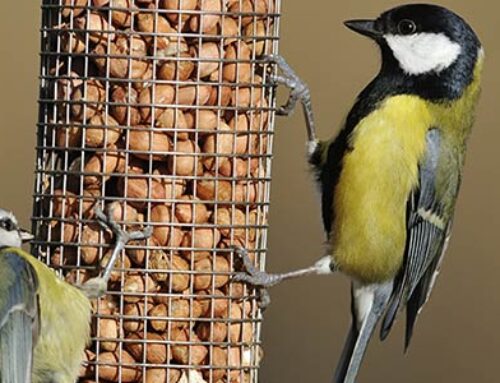Smoothies are a fantastic and delicious way of getting your daily intake of fruit and are quick and easy to make. They are certainly popular as reflected in the abundance of brand smoothies we see on the supermarket shelves, however a lot of these products have artificial additives and excessive amounts of sugar which in the eyes of many contradict the health reasons for including them as part of your diet. Growing your own smoothie ingredients is a cost effective, fun and satisfying way of getting all the goodness from your own garden.
If smoothies are your thing, then here are just some of the berries you can grow which are available in the shop here at Burston.
Grow Your Own Strawberries

Strawberries are fantastic as they can be grown in a range of environments and conditions. You can grow them in the ground, in containers and even hanging baskets. Make sure that the soil you plant your strawberry seeds in is well drained as any strawberries are prone to disease in the event that the soil becomes waterlogged.
When to plant Strawberries
Strawberries can be planted outdoors any time between June and September, however if you decide to plant later in the year then remove the flowers so that that healthier plants can grown next year. How long the fruits take to grow will depend on the variety you pick and the time of year you grow, however try to plan ahead if you want to have them ready for Wimbledon!
Grown Your Own Pineberries

In case you have never heard of pineberries before, they are a variety of white strawberry with red seeds. It is in fact one of the oldest varieties of strawberry which originated from South America and was rescued from extinction by dutch farmers. Just like strawberries, pineberries start off greeb but turn paler as they ripen.
When to Plant Pineberries
Pineberries are what are known as everbearing strawberries, meaning that they will continue to bear fruit all the year round. There may be an exception in particularly hot conditions, however that is unlikely in the UK! As with strawberries, ensure that pineberries are planted in soil that has good drainage and you may find that they thrive better if you plant the odd strawberry plant amongst the pineberries to aid the pollination process.
Grown Your Own Blackberries

Blackberries are easy to grow and the plants will bear fruit in abundance. You may want to take some consideration when choosing the variety of blackberry you grow. Some will produce larger berries which are lovely and sweet and can be eaten from the plant, but will be produced in smaller numbers. Other varieties will be produced in much more substantial numbers and will carry a much sharper taste. Bear this in mind as your choice of berry will be reflected in the flavouring of any smoothies you make.
When to Plant Blackberries
Blackberries can be planted any time between November and March. Whilst they can tolerate cooler temperatures they will still be very susceptible to being waterlogged in winter. Try to plant them in a spot where they can make the most of the summer sun and the inevitable summer rain as well. When you plant your blackberries, keep adding compost and ensure that they are well watered during the initial growing season and any dryer months.
Grown Your Own Blueberries

Blueberries are absolutely delicious and are a wonderful accompaniment to muffins, pancakes and of course smoothies. They are reasonably easy to grow in the garden as any compost you use must be kept moist, but not too wet. Blackberries can take a little extra care as watering them with tap water will raise their pH level, so if you have a container for rainwater in your garden then water your berries with that instead.
When to plant Blueberries
Blueberries can be planted any time between November and January and should be ready for picking by summer. Whether you are planting in the soil or into a container (ensure that it is at least 12 inches in diameter), try to ensure that your plants are in a sunny but sheltered spot.
Grow Your Own Gooseberries

Our climate is ideal for growing gooseberries as they like cooler conditions. This means that these sour and delicious berries are very easy to grow. The beauty of planting gooseberries is that they are so fertile, one good plant will produce as much fruit as several planted close together.
When to plant Gooseberries
The colder months of the year are fine for planting gooseberries as you will be fine any time between November and March. You should expect you plants to bear fruit during July and August, however be sure to thin out any under ripe fruit during early summer.
Grow Your Own Boysenberries

Boysenberries may at first glance look a little like large blackberries, but they are in fact a cross between the raspberry, dewberry and loganberry. Like gooseberries, boysenberry plants are very fertile and are capable of growing a rich crop of fruits. In fact, the plants grow so much that you may want to grow them up some sort of supportive structure by a wall.
When to plant Boysenberries
The ideal planting time is a narrow window of time as you are best planting your boysenberries between the middle of October and November. If the soil available to you drains well then you can get away with planting them during the colder months between of November to March.
Grow Your Own Blackcurrants

Blackcurrants are one of your classic summer fruits which are rich in vitamin C. They are not just ideal in smoothies as they are lovely to use in yoghurts, pies, jellies and jams. Whilst blackcurrant plants will bear large volumes of fruit, they will be even more abundant if you prune and care for your plant properly.
When to plant Blackcurrants
If you want a healthy crop of blackcurrants to use in your kitchen by summer then get them planted in early winter. This is also the time to prune back any blackcurrant plants you have already planted. Blackcurrants can grow in most soil types, providing that it drains water well. As such, you should ensure that you blackcurrant plants are well watered during any dry periods.
Enjoy your Smoothies!




